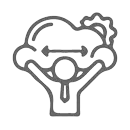Forklift/PIT Training Courses
Use the filter to change the course type, region or language

COURSE TYPE:
COURSE REGION:
COURSE LANGUAGE:
What is online training? Our online trainings are great for those who want to learn at their own pace and on their own time. Online trainings can be completed from any location, eliminating the need for expensive seminars. Employers can assign employees specific trainings and keep track of their progress and exam scores. We also offer DIY Kits and Train the Trainer courses. Use the filter above to see these options.
About CAL/OSHA Trainings: These trainings are aligned specifically with CAL/OSHA Requirements. They are only applicable to employees working in California. If you work in California and you don’t see what you’re looking for on this page, check out the OSHA Safety Courses. U.S. trainings without a corresponding California version are aligned with Federal OSHA regulations and do not have any specific CAL/OSHA Requirements.
About CAL/OSHA Trainings: These trainings are aligned specifically with CAL/OSHA Requirements. They are only applicable to employees working in California. If you work in California and you don’t see what you’re looking for on this page, check out the OSHA Safety Courses. U.S. trainings without a corresponding California version are aligned with Federal OSHA regulations and do not have any specific CAL/OSHA Requirements.
What is a DIY training kit? Our training kits offer a full training experience alongside a comprehensive toolset for further learning. These kits are the perfect resource for those who want the freedom of training employees themselves. Unlike traditional trainings that are taken once, the kit offers a complete initial training as well as activities and materials to train employees long after they’ve been certified. We also offer online trainings and Train the Trainer courses. Use the filter above to see these options.
What is Train the Trainer? Train-the-trainer courses allow employers to take full control of the training process. Employees who take these courses are fully certified to use the training kit and train others. This means that employers can hold training seminars and courses without the need for third-party trainers. Employees who complete these courses are certified for life and can train others confidently with a well-tested learning model. We also offer online trainings and DIY training kits. Use the filter above to see these options.
-

Narrow Aisle Lift Truck Train the Trainer Certification – Canada
$700.00 – $725.00 Select options -

Narrow Aisle Lift Truck Training – Canada
$425.00 – $450.00 Select options -

Pallet Jack Online Training
$79.00 Add to cart -

Pallet Jack Online Training – Canada
$99.00 Add to cart -

Pallet Jack Online Training – Spanish
$79.00 Add to cart -

Pallet Jack Train the Trainer Certification – Canada
$700.00 – $725.00 Select options -
Sale!

Pallet Jack Train the Trainer Certification in Spanish
$700.00 – $725.00 Select options -

Pallet Jack Trainer Certification
$700.00 – $725.00 Select options -

Pallet Jack Training Kit
$425.00 – $450.00 Select options -

Pallet Jack Training Kit – Spanish & English
$475.00 – $500.00 Select options -

Pallet Jack Training Kit- Canada
$425.00 – $450.00 Select options -

Powered Industrial Truck (PIT) Trainer Certification
$700.00 – $725.00 Select options -

Powered Industrial Truck (PIT) Trainer Certification – Canada
$700.00 – $725.00 Select options -

Powered Industrial Truck (PIT) Training Online
$79.00 Add to cart -

Powered Industrial Truck Training Kit
$425.00 – $450.00 Select options -

Powered Industrial Truck Training Kit – Canada
$425.00 – $450.00 Select options -

Sit Down Forklift Online Safety Training
$79.00 Add to cart -

Sit Down Forklift Online Safety Training – Canada
$99.00 Add to cart -

Sit Down Forklift Online Safety Training – Spanish
$79.00 Add to cart -

Sit Down Forklift Safety Training – Spanish & English
$475.00 – $500.00 Select options -
Sale!

Sit Down Forklift Train the Trainer Certification in Spanish
$700.00 – $725.00 Select options -

Sit Down Forklift Trainer Certification
$700.00 – $725.00 Select options -

Sit Down Forklift Trainer Certification – Canada
$700.00 – $725.00 Select options -

Sit Down Forklift Training – Canada
$425.00 – $450.00 Select options -

Sit Down Forklift Training Kit
$425.00 – $450.00 Select options -

Stand Up Forklift Online Safety Training
$79.00 Add to cart -

Stand Up Forklift Online Safety Training – Canada
$99.00 Add to cart -

Stand Up Forklift Online Safety Training – Spanish
$79.00 Add to cart -
Sale!

Stand Up Forklift Train the Trainer Certification in Spanish
$700.00 – $725.00 Select options -

Stand Up Forklift Trainer Certification
$700.00 – $725.00 Select options -

Stand Up Forklift Training Kit
$425.00 – $450.00 Select options -

Stand Up Forklift Training Kit – Spanish & English
$475.00 – $500.00 Select options -

Telehandler Online Training
$79.00 Add to cart -

Telehandler Online Training – Canada
$99.00 Add to cart -

Telehandler Online Training – Spanish
$79.00 Add to cart -
Sale!

Telehandler Train the Trainer Certification in Spanish
$700.00 – $725.00 Select options -

Telehandler Trainer Certification
$700.00 – $725.00 Select options -

Telehandler Trainer Certification – Canada
$700.00 – $725.00 Select options -

Telehandler Training – Canada
$425.00 – $450.00 Select options -

Telehandler Training Kit
$425.00 – $450.00 Select options -

Telehandler Training Kit – Spanish & English
$475.00 – $500.00 Select options -

Truck-Mounted Forklift Online Canada
$99.00 Add to cart -

Truck-Mounted Forklift Online Training
$79.00 Add to cart -

Truck-Mounted Forklift Train the Trainer – Canada
$700.00 – $725.00 Select options -

Truck-Mounted Forklift Train the Trainer Certification
$700.00 – $725.00 Select options -

Truck-Mounted Forklift Training Canada Kit
$425.00 – $450.00 Select options -

Truck-Mounted Forklift Training Kit
$425.00 – $450.00 Select options -

Tugger Online Safety Training
$79.00 Add to cart -

Tugger Online Training – Canada
$99.00 Add to cart -

Tugger Train the Trainer Certification – Canada
$700.00 – $725.00 Select options -

Tugger Training Kit – Canada
$425.00 – $450.00 Select options -

Utility Vehicle Online Training – Canada
$99.00 Add to cart -

Utility Vehicle Trainer Certification
$700.00 – $725.00 Select options -

Utility Vehicle Trainer Certification – Canada
$700.00 – $725.00 Select options -

Utility Vehicle Training Kit
$425.00 – $450.00 Select options -

Utility Vehicle Training Kit – Canada
$425.00 – $450.00 Select options -

Utility Vehicle Training Online
$79.00 Add to cart -

Walkie Stacker Online Safety Training
$79.00 Add to cart -

Walkie Stacker Online Training – Canada
$99.00 Add to cart -

Walkie Stacker Trainer Certification – Canada
$700.00 – $725.00 Select options -

Walkie Stacker Training Kit
$425.00 – $450.00 Select options -

Walkie Stacker Training Kit – Canada
$425.00 – $450.00 Select options -

Yard Truck Online Training – Canada
$99.00 Add to cart -

Yard Truck Trainer Certification – Canada
$700.00 – $725.00 Select options
WHY CHOOSE
HARD HAT TRAINING?
We’re a trusted provider of what we feel is the best powered industrial truck or PIT training available on the market today. Our safety training courses can be done anywhere. We offer online training optionsWe can get you your certification in as little as two hours with our online training. You can also use a more robust, customizable option through our DIY training kits training. No matter which option you want, we can help you get the industrial hygiene training you want at a price you can afford.

Flexible Courses

Customer Service

Training Courses

alignment Certificate
What and Why?
What’s In The PIT Training Courses?
Our PIT training courses are regulation-aligned, and our online versions fulfill training requirements. Each class contains sections on machine anatomy, principles of stability, safe operations, common hazards to avoid, and more.
These presentations include intermittent practice quiz questions to prepare for the final written exam included with the courses. In addition to the written exam, these courses also include a checklist for employers to use when administering a practical exam.
Though you will still need to familiarize yourself with all other applicable federal, state, and local standards, these trainings encompass the following OSHA Requirements for powered industrial trucks:
Why Do I Need PIT Training?
In line with OSHA requirements, anyone who operates heavy equipment must receive training prior to operating the machine on their own.
OSHA requirements for refresher training related to powered industrial trucks or other processes are very specific: operators must be re-evaluated every three years to see if they are still competent to operate the equipment. Best practices say to apply this same rule to all types of equipment.
A so-called “free-pass” cannot be awarded based on experience, age, or time on the job. The extent of the evaluation is to be determined by the employer but should include a written and practical examination that proves continued competency.
PIT Training Frequently Asked Questions

How often do I need to take PIT training?
OSHA requires PIT training for PIT operators—on that, there is no question. Where confusion exists is how often operators need PIT refresher training or recertification. Outside of the initial safety training class, OSHA requires PIT operators to be re-evaluated every three years to determine if they are still competent enough to operate.
However, three years is the maximum time that is allowed to pass before an operator receives PIT recertification. According to OSHA, several instances require additional PIT safety training and observation before the three-year period is up:
I’ve received PIT training. Can I operate a telescopic handler?
Not likely. OSHA requires PIT operators to receive PIT safety training for each type of PIT. On this term, “type,” there is much confusion. Generally speaking, by “type” OSHA means PIT vs. stand up PIT vs. telescopic handler vs. truck mounted PIT, etc. For example, imagine you have always operated a stand-up PIT in a warehouse but have suddenly been asked to operate a telehandler. In this case, you would need additional PIT training specific to telescopic reach PITs.
Here’s a different scenario: if you have received sit down counterbalance PIT safety training in a warehouse and have always operated a Toyota PIT, but then are asked to operate a Cat PIT, you should be just fine to operate under the same training certification and PIT license (wallet card) received previously. Keep in mind though, controls can differ greatly from brand to brand, so in some cases, you may need additional instruction or a quick refresher training PIT course to make sure you are clear on what each control does.
I’ve operated PITs for 30 years. Do I need to take a PIT course/class, a written exam, and a practical exam still? Or can I just take a written PIT operator test?
Yes, you need to take a PIT operator safety training course. No matter how long you’ve been on the job, OSHA requires PIT safety training, a PIT written exam, and a practical PIT evaluation. There is no way around it. The extent of the classroom training can be adapted by the instructor according to student needs. The written exam proves mental competency and understanding of the safety principles taught. And the practical evaluation proves the PIT operator not only understands but is capable of operating safely. Many of our customers believe the practical evaluation has the greatest overall value.
I received PIT safety training at a different job. Do I need to be trained again by my new employer?
This is a common question, especially among laborers-for-hire who may sub out from job to job. Technically, it is your current employer who is responsible for saying whether or not you have been trained specifically for the type of PIT and job. If you bring a counterbalance PIT certificate or counterbalance PIT license (wallet card) to your new employer, they do not have to accept it. It is their right to require you to take their own training class. This is because if there is an accident, they will likely be responsible and need to prove to OSHA that they trained you on PIT operations.
Can you explain PIT certification? Who can train, evaluate, and certify operators?
This, above all, causes a lot of confusion. Bottom line, OSHA states that employers are responsible to train their employees. Generally speaking, there are three ways they can do this:
In terms of using a 3rd party’s safety training materials (like our PIT training kits on CD or our PIT online training classes), OSHA does not recognize one company over another. They simply state that ‘training needs to occur’ and ‘here are the things a PIT operator should be trained on.’
How do I take the PIT practical evaluation if I take PIT safety training online?
The online PIT course covers OSHA’s requirements for the classroom portion. Many employers prefer online training because they know exactly what PIT safety training the operator will receive. In live classes, the training sometimes varies. A written exam is included at the end of our online training courses. After the PIT class and exam are finished, you and your safety managers will have immediate access to a practical evaluation checklist. This can be printed off and used by your supervisor to help him or her evaluate you on the PIT. When the practical evaluation is done, they can sign it and file it with your exam. This will satisfy OSHA’s requirements for PIT certification.
Can I use any PIT attachment with my PIT?
No. OSHA states that the PIT manufacturer must approve the use of a specific PIT attachment. Too often we see PIT operators using personnel work platforms (man baskets) or other attachments that are made by different manufacturers. They assume that because their PIT is equipped to use such an attachment, it is okay to use any brand. Not true. If you are operating a Toyota PIT then you must contact Toyota and get their written approval to use any attachment, especially if they are of another brand. New capacity plates must be issued with any addition. Your operator’s manual will tell you if your PIT can handle certain kinds of attachments or not.
My trainee scored 80% on the PIT training test/exam. Did he pass or fail his PIT operator safety training course?
Contrary to popular belief, OSHA does not dictate what a passing score entails. That is ultimately up to the employer, who is also responsible for certifying (or authorizing) their employee to operate a PIT. If an employer chooses to pass their employee at 80% on the PIT safety exam, that’s fine. But what if a question or two among the 20% missed could lead to an accident or death? Is it worth it? Our recommendation is that you always go over any missed questions with your trainees—even if they just missed one. Once they understand the principle missed, have them write their initials by the correct answer. That way, you are protecting them and those around them from potential accidents in the future.
What do I do if I can’t find training near me?
We offer online training that is aligned for forklifts and other powered industrial trucks. Many employers prefer online training because they know exactly what training the operator will receive.
